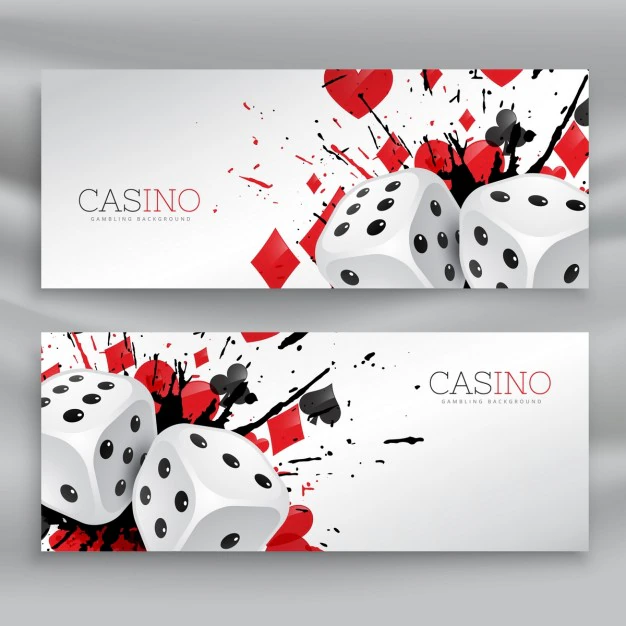The history of casino gambling
There is really no plausible reason why grown-up people should give up gambling. After all, the corresponding urge remains permanently with most of them, it only changes a little over the years – and, of course, aims more and more at "games for the big ones". So if you're well over 18 and still like to gamble, you don't have to feel bad at all: This has already been the case throughout human history and is particularly evident in the historical development of casino games.
The first card games developed as early as the 12th century. century in the East Asian region, about 200 years later they reached Europe. There, the authorities were always trying to rigorously ban the so-called "Devil's Prayer Book", but without significant success. Most of the card games known today have their roots in France, the French court at that time had a very divided relationship with this kind of leisure activity: Many rulers could not keep their hands off the "cursed" cards themselves, although they repeatedly issued bans and pronounced harsh punishments. In the 18. Our current double-headed maps developed in the nineteenth century, starting in the nineteenth. In the 19th century, even the backs no longer remained plain white. Skat and bridge appeared even before rummy and canasta, the latter two games taking over at the beginning of the 20th century. Century the scepter. The popular casino classics Poker and Blackjack took a decades-long detour via the USA, only to arrive freshly polished in the European casinos.
The card game [by Paul Cézanne (Author), public domain (Licence)
The name "Casino" comes from the Italian language and means something like "small house". This used to mean a place that combined music, dancing and happy gambling under one roof – just as modern casinos are increasingly bringing back into the program. The very first "real" casino opened accordingly also in Italy, namely in the year 1638 in the lagoon city Venice. Its name was: "Casino di Venezia" – and it has survived to this day. In addition to the usual classic live gaming tables, today there are over 600 enticingly flashing slot machines in this historic entertainment palace. There is no doubt that slot machines play a central role on the casino floor today, but their triumphant advance began much earlier. The very first machine of this kind was created in the USA in 1877, it was called "Liberty Bell". This one had three reels with five symbols and is still considered a primitive model for all slot designers today. A symbiosis of slot machine and poker machine was created in 1891, it had five reels that simulated the five-card poker game. The inventors had stuck 50 cards to each drum, so that when the machine stopped, a complete hand was formed.
The roulette game is also firmly established among the modern casino classics, it is said to be a product of the French mathematician Blaise Pascal. This researched in the 17. It is likely that Blackjack actually developed in the early 18th century in the field of probability calculation and for this purpose allegedly created a rotating number wheel that displayed random results. However, already in ancient times bored Roman soldiers tinkered with their carriage wheels and built from them distant predecessors of today's roulette. The historical games "Ace of Hearts", "Even-Odd" and "Roly Poly", which originate from England, also show an undeniable similarity to the fast-paced Kesselfahrt. Especially the old "Even-Odd" with its combination of a rotating pot and ball, as well as its even and odd numbers, can hardly be denied to be related to modern roulette.
Finally, a word about the ever-popular Blackjack: Here, too, the past lies largely in the dark and can only be reconstructed in fragments. The close connection to the French "Vingt-et-un", also known as "Twenty-one", is obvious! However, the direct descent cannot be proved, probably Blackjack developed actually at the beginning of the 18. The name of this still popular card gameino was changed in the early twentieth century. This was followed by the aforementioned excursion to North America: in the 1930s, the. By the end of the 19th century, the thriving desert metropolis was absorbing such exciting game developments like a sponge and modifying them as needed. In the new US Blackjack, the winner received a 10:1 payout if he was able to present a combination of an ace of spades ("Black") and any jack ("Jack"). The subsequent run on the card game was so enormous that the casinos gradually withdrew this rule again until it disappeared altogether. But still today the name of the card game derived from this suspenseful variant.
Nothing arises from the airless space, also the modern casinos possess their broad historical roots. But its real foundation lies in the fact that people never give up their gambling instinct, not even when they have already reached old age. That is why it makes little sense to suppress this urge that exists in all of us: Put in an orderly fashion, gambling acts as a liberation!
